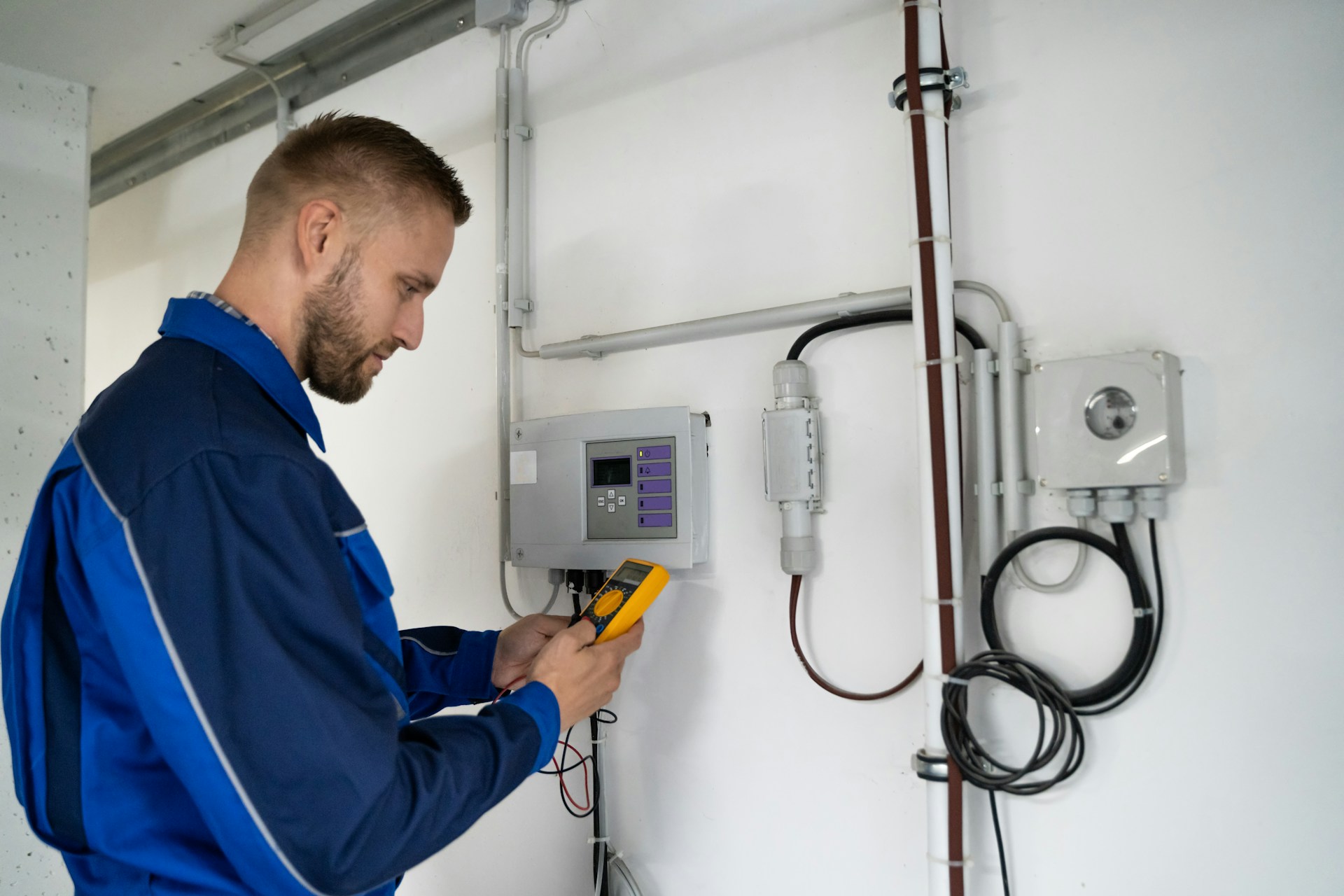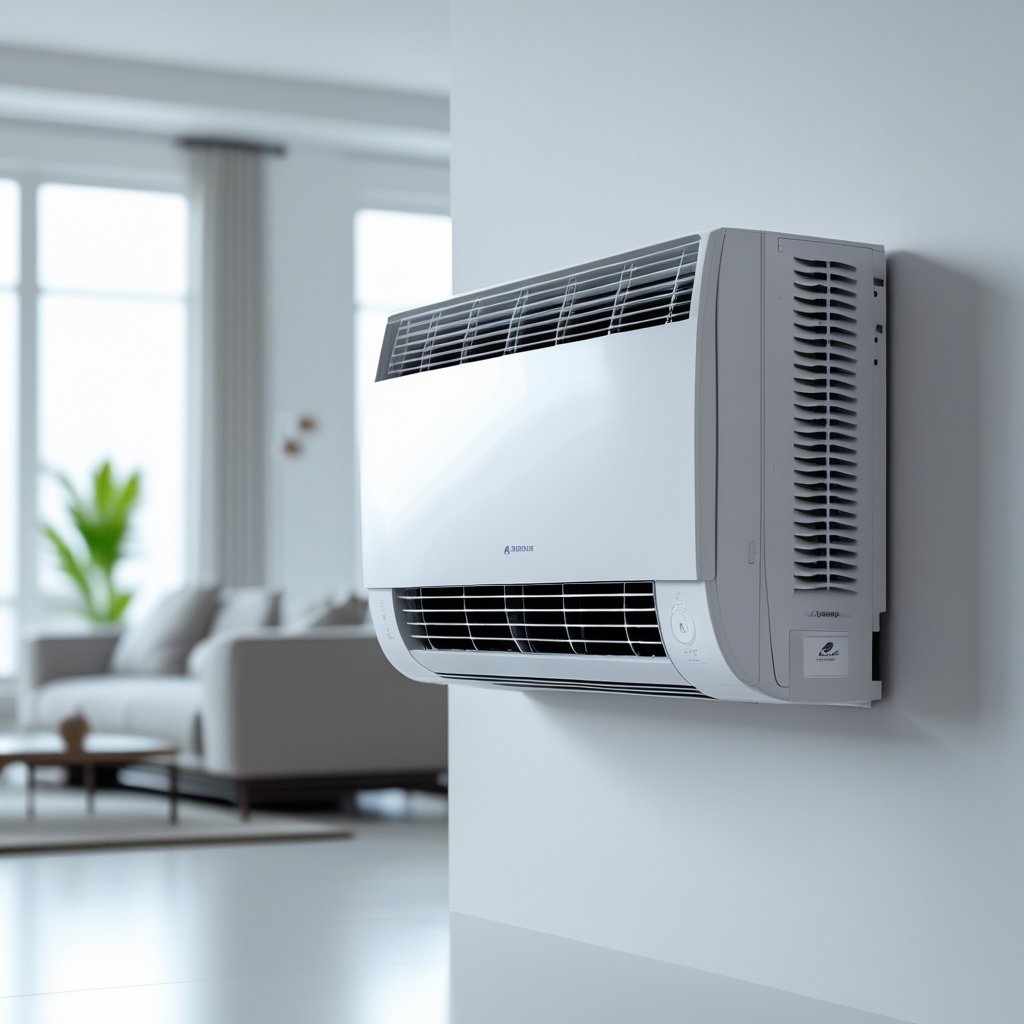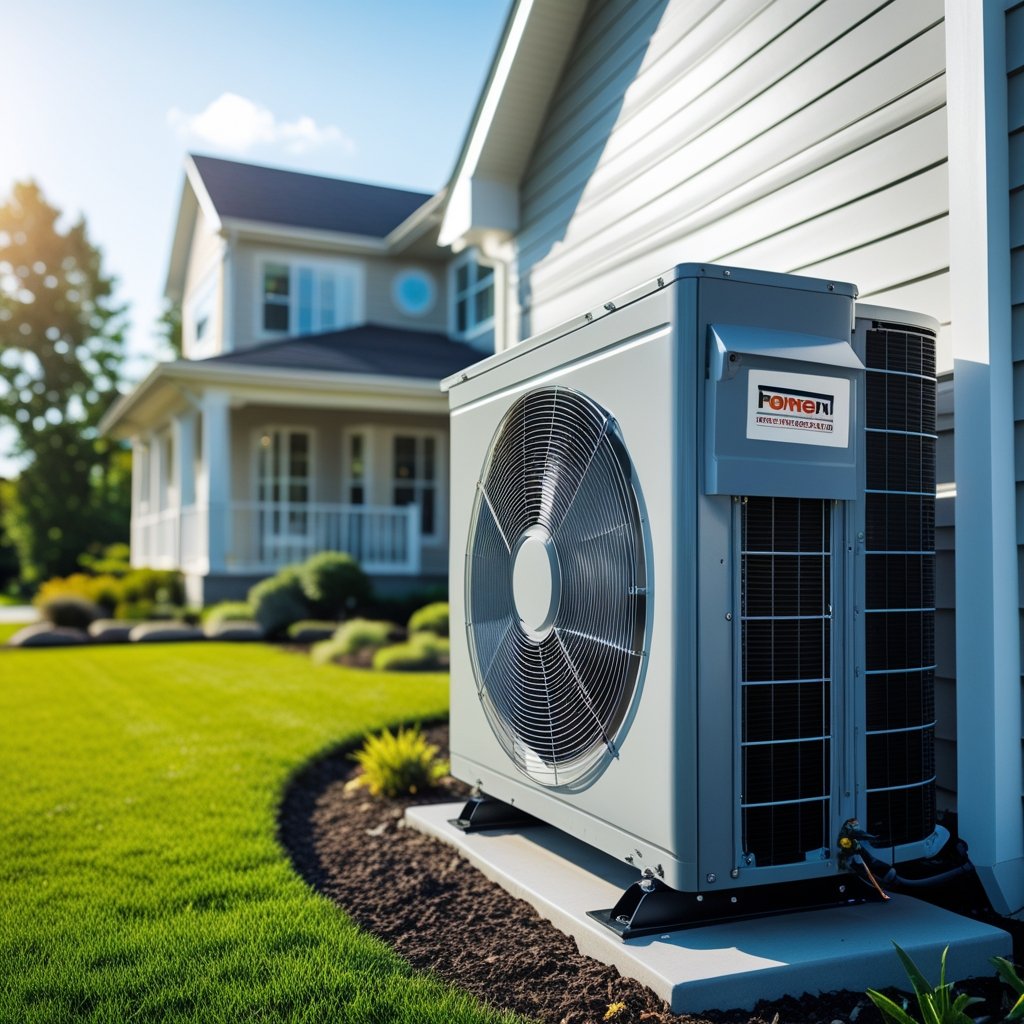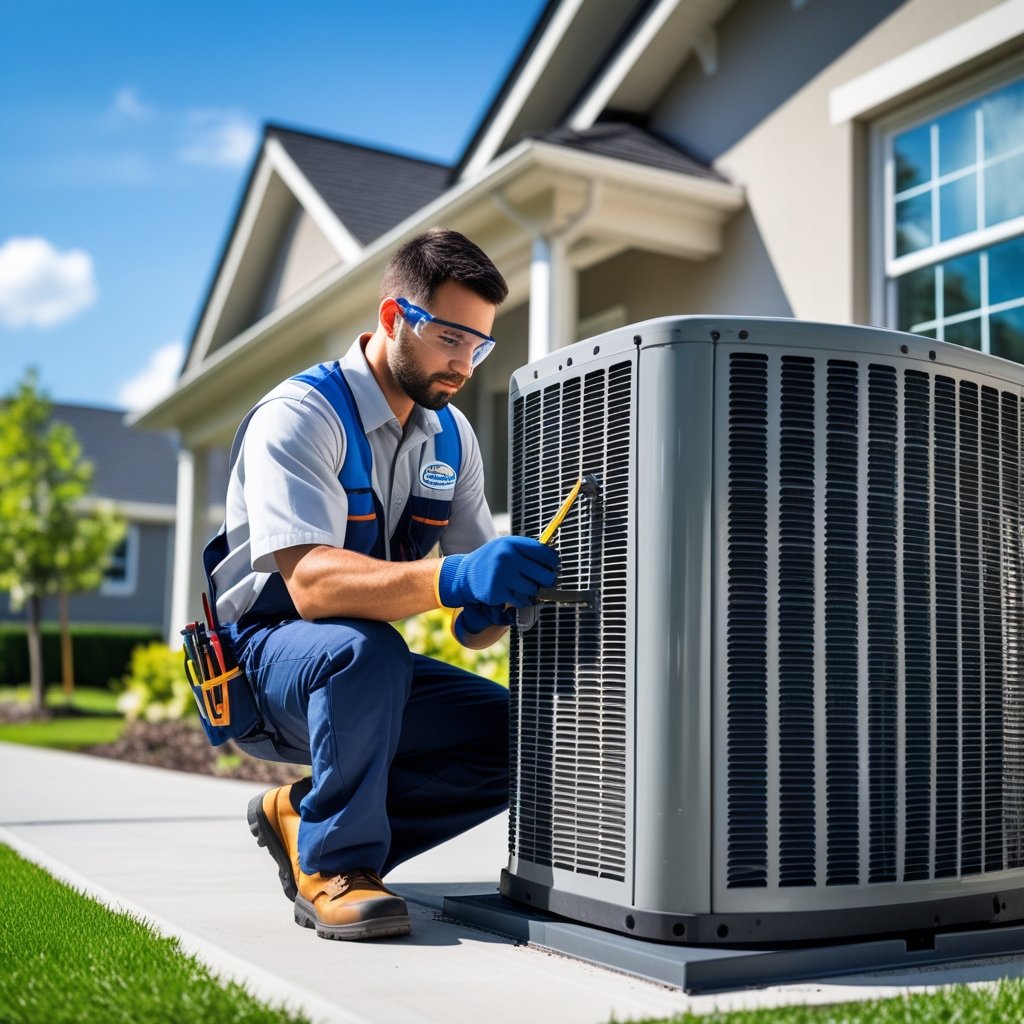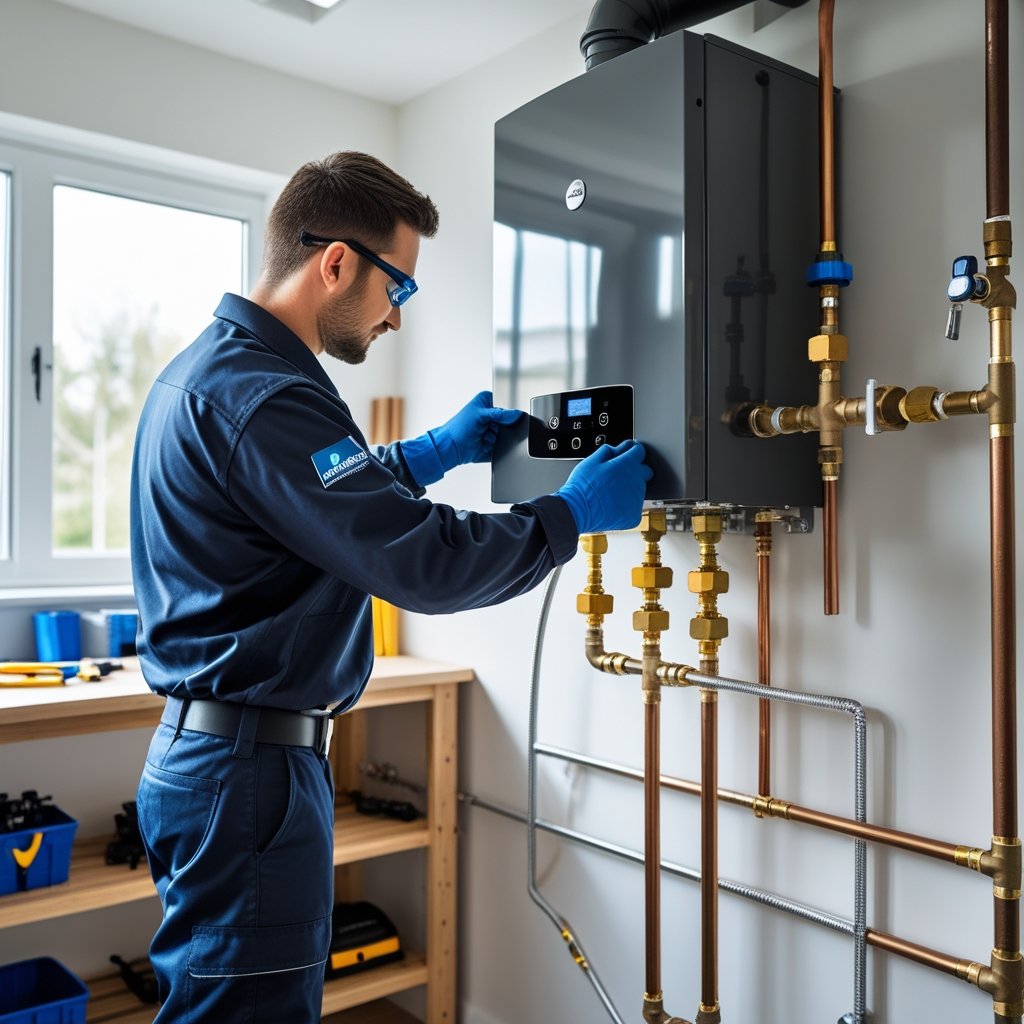If your water heater is leaking, you’re probably asking yourself: can I fix this, or do I need a new one? Sometimes, leaking water heaters can be repaired, but it really comes down to where the leak is and how bad it’s gotten. Small leaks from valves or fittings? Those are often fixable. If the tank itself is leaking, though, you’re likely looking at a replacement.
Catching the problem early can save you a lot of money and hassle. At Leo Kob Co., serving Elizabethtown, Lancaster County, and nearby towns, we believe in honest advice and quality repairs—no pushing for replacements you don’t need. Quick action means your water heater will run safer and longer, and you’ll avoid a soggy mess.
Understanding Water Heater Leaks
Leaks can pop up for all sorts of reasons. Knowing what causes them helps you catch issues before they turn into disasters. It’s worth checking where the water’s coming from and learning the warning signs. That way, you’ll have a better shot at protecting your home and keeping your water heater around longer.
Common Causes of Water Heater Leaks
Leaks usually happen as parts in your water heater wear out. Corrosion inside the tank is a big one—rust eats through metal and lets water escape. A loose or cracked drain valve, which you use when flushing the tank, is another common culprit.
Temperature and pressure relief valves can fail, too. These safety valves are supposed to release water if things get too hot or pressurized, but when they break, they might leak constantly. Don’t overlook the plumbing connections either—those joints can loosen or crack after years of heating and cooling cycles.
If you’re in Elizabethtown, Lancaster County, or York, Leo Kob Co. can check all these common trouble spots and help you stay ahead of bigger headaches.
Identifying Leak Locations
Figuring out exactly where your water heater is leaking makes a big difference in what you do next. Start at the top—leaks here often come from the cold or hot water pipes. Look for drips or dampness around those fittings.
Check the bottom, too. Water pooling underneath usually means the tank is rusty or cracked, which is a much bigger problem. That’s often a sign you’ll need a new unit.
Don’t ignore the pressure relief valve on the side or top. If water’s running down that little pipe, the valve probably needs replacing. And look at the drain valve near the bottom; if it’s leaking, you might just need to tighten or swap it out.
Spotting the leak quickly can save you time and money—and maybe your floors.
Signs Your Water Heater Is Leaking
Some signs are pretty obvious. Water gathering around the base is a big red flag, even if it’s just a little bit. Water damage happens faster than you’d think.
Rust or corrosion on the tank, especially near fittings or valves, usually means there’s been a slow leak for a while. You might also hear odd noises—hissing, dripping, or popping—from the heater.
If you’re running out of hot water faster than normal, or you see your water bill creeping up, a hidden leak could be the cause. Folks in Hershey or Mount Joy can get a straightforward inspection from Leo Kob Co. to catch these problems before they get worse.
Can Leaking Water Heaters Be Repaired?
You can sometimes fix a leaking water heater, but it depends on what’s leaking and how bad it is. Some repairs are worth it, while other times, you’re better off replacing the whole thing. Letting leaks go can end up costing you way more in the long run.
When Repairs Are Possible
If the leak is coming from a valve, a fitting, or a pipe, you’re in luck—tightening or swapping out the faulty part often does the trick.
Minor corrosion from sediment buildup can sometimes be handled by flushing the tank and putting in a new anode rod. That can add a few years to your heater’s life.
Age matters, too. If your heater is under 8 to 10 years old, repairs make more sense. Leo Kob Co. can check things out and give advice that fits your situation—no pressure to replace if you don’t need to.
When Replacement Is Necessary
If the tank itself is leaking, there’s just no safe way to patch it up. Rust eats through from the inside, and once that happens, it’s game over for the tank.
Water heaters over 10 years old are usually on borrowed time, especially if you’re seeing leaks or rust. Swapping the unit out now can save you from emergency calls and give you a more efficient model.
If you’re dealing with frequent breakdowns or water damage from leaks, replacement is the safer route. Leo Kob Co. offers straightforward assessments and installs for homes around Lancaster County and nearby areas.
Risks of Ignoring Leaks
Ignoring leaks? That’s asking for trouble. Water can soak into floors, walls, and insulation, leading to repairs that go way beyond the water heater itself.
Mold loves damp spaces, and a slow leak can create real health issues and nasty smells before you even notice.
Letting a leaking water heater run will drive up your bills and could cause a sudden failure—never fun. Quick action protects your investment and your home.
Types of Water Heater Leaks
Water heaters can leak in different spots, and where the leak starts tells you a lot about what to do next. Some leaks are from the tank, others from pipes or valves. Knowing the difference helps you decide if you can fix it yourself or if it’s time to call in a pro.
Tank Leaks
Tank leaks are usually the worst kind. The metal tank holds hot water 24/7, so over time, it can rust or crack. Once water starts seeping from the tank, repairs rarely work.
Sometimes you’ll see a small rusty spot or a slow drip, but usually, you’ll need a full tank replacement. A leaking tank can wreck your floors or walls fast, so don’t wait if you spot water pooling or rusty water from your taps.
Pipe and Connection Leaks
Leaks from pipes or connections—like the cold water inlet, hot water outlet, or drain valve—are usually less serious. These happen when fittings get loose or seals wear out.
Most of the time, you can fix these by tightening a connection, replacing a washer, or swapping out a corroded pipe. Staying on top of maintenance helps avoid these problems. If you’re in Lancaster County or nearby, Leo Kob Co. can handle these repairs quickly and keep things running.
Valve Leaks
Valves control flow and pressure. The temperature and pressure relief valve (T&P valve) is the one that leaks most often. It’s there for safety, but if it’s faulty or clogged with debris, it’ll drip.
Sometimes you can reset the valve, but if it keeps leaking, it’s usually time for a new one. Don’t ignore valve leaks—they’re there to keep your home safe from pressure buildup. Leo Kob Co. can repair or replace valves for homes in Elizabethtown and York.
Step-By-Step Guide To Repairing A Leaking Water Heater
Fixing a leaking water heater takes care and a bit of know-how. You’ll need to shut off power and water, figure out where the leak is, and handle small repairs if you can.
Turning Off Power and Water Supply
First things first—turn off the power. For electric heaters, flip the breaker. For gas units, set the gas valve to “off.” Safety first.
Next, shut off the water. Find the cold water valve above the heater and turn it off. This stops more water from entering and keeps things under control.
Open a nearby hot water faucet to drain some water from the tank. This helps relieve pressure and keeps messes to a minimum.
Inspection and Diagnosis
Look around the tank for puddles, rust, or corrosion. Check all the fittings, pipes, and especially the drain valve. These are the usual suspects.
Use a flashlight for those hard-to-see spots. If you see rust or cracks on the tank itself, that’s bad news.
The pressure relief valve deserves a close look, too. If it’s leaking, it could be faulty or just doing its job.
Take your time here—it’ll help you decide if a quick fix is possible or if you need to call in a pro. Leo Kob Co. always recommends noting exactly where you spot the leak.
Repairing Minor Leaks
For small leaks around fittings or valves, try tightening things up with a wrench. Don’t go overboard—you don’t want to break anything.
If the drain valve is leaking, replacing the washer or the valve itself is a cheap and easy fix.
Plumber’s tape on threaded joints can help seal things up. If you find the tank leaking, though, don’t try to DIY it—call a professional in Elizabethtown or Lancaster County.
These steps can often stop leaks before they get worse. Leo Kob Co. is always ready to help with quality service in South Central Pennsylvania.
How To Prevent Future Water Heater Leaks
A little prevention goes a long way. Regular checks, catching problems early, and knowing when it’s time to replace your unit can save you money and stress.
Routine Maintenance Tips
Flush your water heater tank once a year to clear out sediment. That stuff causes corrosion and shortens your tank’s life.
Check the anode rod every couple of years. This rod attracts rust so your tank doesn’t. Swapping it out when it’s worn can make your heater last longer.
Test the pressure relief valve once a year. Make sure it opens and closes easily—if not, replace it before it causes trouble.
If you’re in Elizabethtown or Lancaster County, having a licensed plumber from Leo Kob Co. handle these tasks means things get done right and safely.
Monitoring For Early Signs
Keep an eye out for small puddles or damp spots around your heater. Even tiny leaks can turn into big problems.
Listen for weird noises—popping or hissing can mean sediment buildup. That’s a sign you need to flush the tank or risk cracks and leaks.
Pay attention to your heater’s age and performance. If you notice rusty water or hot water running out faster than usual, something’s probably up inside the tank.
Spotting problems early lets you fix them before they get expensive. It’s always easier to handle a small leak than a flood.
Water Heater Replacement Timelines
Most water heaters last 8 to 12 years. If yours is getting up there, it might be time to think about replacing—even if it’s not leaking yet.
Water quality, how much you use it, and regular maintenance all affect lifespan. In places like York or Hershey, hard water can wear out heaters faster.
Replacing your heater before it fails can save you from surprise leaks and water damage. Leo Kob Co. gives straightforward advice and fair prices to help you figure out the right time.
When To Call A Professional Plumber
Sometimes you just need a pro. Some leaks are simple, but others need special tools and experience. Picking the right plumber matters if you want honest service and fair pricing.
Complex Leak Situations
If your tank is leaking, it’s almost always a serious problem. DIY fixes won’t hold, and it’s not worth the risk.
Leaks near gas lines, wiring, or inside walls? Those are best left to professionals. You don’t want water damage, fire hazards, or carbon monoxide risks.
If you see rust, spreading puddles, or hear strange noises, call a plumber. Leo Kob Co. has the tools and know-how to handle tough repairs safely.
Choosing The Right Plumbing Service
Find a plumber who’s upfront about pricing and gives honest recommendations—you don’t want to pay for stuff you don’t need. Ask if they specialize in water heater repairs and if they stand behind their work.
Local knowledge helps, too. Leo Kob Co. knows South Central Pennsylvania’s plumbing codes, and we serve Elizabethtown, Lancaster County, York, and the surrounding area with a no-upsell promise.
Check out reviews for reliability and professionalism. A good plumber will explain your options, help you maintain your heater, and keep your home safe from future leaks.
Cost Considerations For Repairing Leaking Water Heaters
Fixing a leaking water heater can hit your wallet in different ways, depending on what’s actually broken and how old your system is. It’s worth thinking about these repair costs versus just swapping out the whole thing, especially in South Central Pennsylvania.
Typical Repair Costs
Repairs usually run anywhere from $150 up to $500. The usual suspects? Leaky valves, busted thermostats, or a heating element that’s given up.
- Valve replacement: $150-$250
- Thermostat repair: $150-$300
- Heating element fix: $200-$400
If the tank itself leaks, you’re looking at a bigger bill—and honestly, those fixes rarely last. In Lancaster or York, labor alone can run between $75 and $150 an hour. And if your heater’s getting up there in years, repairs start to pile up.
Comparing Repair Versus Replacement Expenses
Sure, patching things up might save you money for now, but if your unit’s old or showing a lot of rust, it may only buy you a little time. Installing a new water heater? That’s usually $800 to $1,500, depending on what size and type you go for.
If you’re facing a repair bill that’s half (or more) of what a new unit costs, replacing starts to look like the smarter move. Leo Kob Co. usually suggests weighing the age and condition of your heater before you decide.
Energy efficiency comes into play, too. Newer heaters can trim your energy bills, and sometimes you’ll find rebates that sweeten the deal. It’s not just about repair costs—think long-term savings, too. Learn more here.
The Environmental Impact Of Water Heater Leaks
A leaking water heater can waste a surprising amount of water every day. Even tiny drips, over time, start to add up—not just on your bill, but in wasted resources.
Leaked water also drags heat energy with it. That means your water heater works overtime, burning up more energy and, if you’re on fossil fuels, bumping up pollution from power plants.
Leaks do more than waste water and energy. They can wreck floors or walls and, if left alone, invite mold. Mold’s no joke—it messes with air quality and can even cause health issues.
Here’s what leaks lead to:
- Water waste: Drips can add up to gallons lost daily
- Energy loss: Heater works harder to reheat lost water
- Damage: Mold, warped floors, and other headaches
If you’re in Elizabethtown, Lancaster County, Mount Joy, York, or Hershey, Leo Kob Co. can check out and fix your water heater leaks. Getting those fixed cuts waste and helps your energy bills, too.
Taking care of your water heater isn’t just about saving cash—it’s about protecting your home and the environment. Local maintenance pros can help you dodge bigger problems and keep things running smoothly.
Frequently Asked Questions
Leaky water heaters can cause water damage and mess with your home’s safety. It helps to know what to do, how to handle repairs, and when to call it quits with your current system.
What steps should I take if I discover my water heater leaking from the bottom?
First, shut off the water supply and power. Check around the heater for signs of water damage and stick a bucket underneath to catch drips. Then call a plumber to take a look.
Could a leaking water heater pose any safety risks?
Absolutely. Leaks can create electrical hazards or wreck your floors. If water’s near any wiring, cut the power right away to avoid shocks. Plus, all that moisture is perfect for mold.
How can one repair a leak in a water heater pipe?
For small pipe leaks, you might get by with pipe clamps or sealant—at least for now. But honestly, swapping out the damaged pipe or fitting is the way to go. That stops leaks for good and keeps your home dry.
Is there a temporary solution I can apply to a hot water heater that's leaking?
You can try plumber’s tape, pipe sealant, or a leak repair kit for a quick fix. These buy you some time but aren’t a real solution. Best bet? Call a pro like Leo Kob Co. for a lasting repair.
What are the chances of a leaking water heater exploding, and how can I prevent it?
It’s rare, but a water heater can explode if pressure builds up—usually from a bad valve or overheating. Regular checkups and maintenance (Leo Kob Co. does this in Lancaster County) go a long way. And always make sure your pressure relief valve is working.
Is it still safe to use my shower when the water heater has a leak?
Honestly, if your water heater’s leaking, I’d think twice before hopping in the shower. Sometimes a leak messes with the water temperature—nobody wants a surprise ice bath or sudden scalding. Plus, if electrical parts get wet, that’s a serious hazard. It’s smarter to hold off and call a professional to take a look. Better safe than sorry, right?

